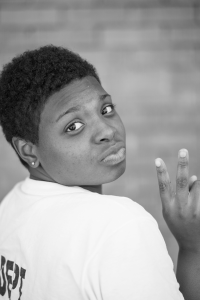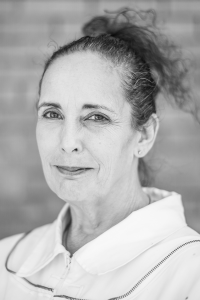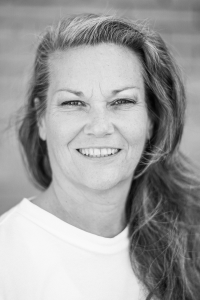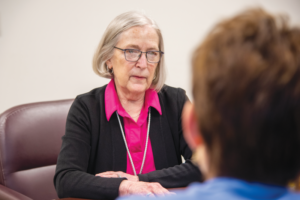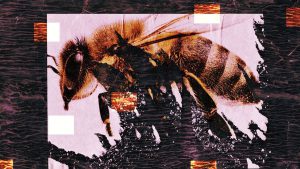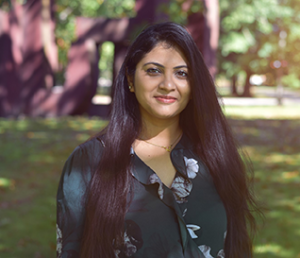By Jennifer Berry
Several years ago, I wrote an article about the first class to became certified beekeepers in a maximum security prison through our Georgia Master Beekeeper Program. Since that time, four additional prisons have added beekeeping programs with another one the way. To date over seventy inmates have become certified beekeepers behind bars. Our job has been to assist with the program and personally administer the Georgia Master Beekeeper exams once the students had completed the program. So far, every student that has taken the exam has not only passed but has passed with flying colors. The average score for the inmates is well into the 90% range. Yes, I know, they have ample time to study however they are extremely committed, so much so, several of the students had to learn to read in order to take the exam.
The Georgia Master Beekeeper Program is an intensive four-step program designed to educate students about all things dealing with bees and beekeeping. It allows participants to not only increase their knowledge but to hopefully take that knowledge and teach others about beekeeping and the importance of pollinators. The four levels of beekeeper certification are Certified, Journeyman, Master and Master Craftsman.
This past June, I and Westley Hestler, (UGA lab technician), traveled to Lee Arrendale State Prison (all women’s facility) to administer the Georgia Master Beekeeper examination. By the end of the day we added seven more qualified certified beekeepers to our roster. But even more impressive was the addition of the five women into the Journeyman rank. We are very proud of all the students that have passed the various levels in our Master Beekeeper Program, but have been exceptionally proud of those that have done so behind bars. As you can imagine this is not an easy task given the situation and the inability to access information.
A few weeks after the exam at Arrendale, I received a packet of letters. After reading each one, I wanted to share them with you (with their permission of course). These are the letters from the five ladies that have become the first Journeyman Beekeepers behind bars.
Journeyman Beekeeper
I cannot begin to explain how beekeeping has changed my life and has helped me to know myself in ways that 23 years of life had yet to do. Learning the life cycle and overall ways of the honey bee has given me a new perspective on my life. Loyalty, sacrifice, one’s anatomy and genetics are all things that make up a good colony, thus they make up a good life. As poetic and cliché as that sounds, it’s the God’s honest truth. I love beekeeping, and all that it has given me over the past two and a half years.
Julia Mahood pushed me and was patient with me. She also encouraged and helped me to believe that I not only could do this and go all the way through the certification levels, but that I was actually good at it. It always feels good to be good at something, and my something lies in the honey bee.
My experience does not stop here at Lee Arrendale. If I don’t take anything else away from this 15 year hostage situation 😉 –wink!— it will definitely be my love of, and knack for beekeeping, and the knowledge that I’ve gained and want to spread. The honey bee and all pollinators are so vital to our existence and it is pertinent that more people not just know, but love and understand them, as I myself have grown to love and understand them. #fortheloveofhoney
Journeyman Beekeeper
The 2016 new year Beekeeping Class sign-up sheet, that appeared on my dorm wall might as well have leaped at me, grabbed my shoulders, and shook my body as nothing else in my decades of incarceration has done. Even more earthshaking took place when I was accepted from the hundreds that applied for this brand-new vocational class.
I’m bee-dazzled, you might say. Upon opening our beginner class book First Lessons In Beekeeping, I read the words describing beekeeping as an art and science. I have always loved nature and art as well as creative problem-solving. I love the outdoors, especially in warm weather. I notice not long after the winter solstice how the sunlight lasts longer and I can’t help but romanticize honeybees doing the same. I’m sure we are kindred spirits even if honey is not my preferred diet.
How do I count the boring days of prison life? They seem to go by much faster since working with honey bees. After a third Summer of beekeeping, I’ve witnessed a great variation of behavior in these insects that an uninitiated would just term a “busy bee”. They differ greatly between individuals and colonies. I like seeing new students learn one thing and then the bees showing them something different.
I loved a variety of insects as a child, but had never watched a colony of honey bees. From documentaries, I knew of the “dance language” and hive use in great numbers in commercial pollination. I’ve learned so much about bee behavior in their hive box and I’m eager to keep learning.
Journeyman Beekeeper
Thank you so much for taking the time to come and personally administer our beekeeping exams. I can’t begin to tell you how important your efforts on our behalf are to us, or how truly grateful we are!
People often ask me what bee and barbed wire have in common. Here at LASP the barbed wire fence encloses more than just a prison; within this fence, is also an apiary. Our apiary now consists of ten hives, each home to a colony of honey bees. Tens of thousands of little bees, that first came to us in April of 2016. I was one of the lucky few chosen to participate in the very first beekeeping class inside a State of Georgia Women’s Prison.
In prison, classes teaching marketable skills (auto paint and body, auto mechanic, woodworking welding, small engine repair, etc.) are normally reserved for young inmates who will be going home soon. It’s very hard for someone with a long sentence to get into vocational classes. However, this beekeeping class was going to be an ongoing endeavor, so they needed a few “long timers” to learn, to become certified, and to teach future students.
I am a 62-year-old, great-grandmother. I was thrilled to be chosen and excited that our first bees would arrive soon. I knew absolutely nothing about bees! Grandma was going to learn a new skill. We were taught by Julia Mahood and Virginia Webb-two gifted Master beekeepers who donated their time to share with us the delightful and curious way of honeybees. There is so much to learn: species, families, long Latin names, and the special characteristics that make each different species unique. Then there are the individual bees themselves. They are truly one of God’s most amazing creations.
I am most impressed by the workers. They are the smallest, yet God has given them the task of pollinating the flowers and increasing the harvests that feed the ever-increasing population of our world. Their hairy little bodies are designed to be the perfect method of transporting pollen from one flower to another. Their work is organized and efficient and their products are healthy and nutritious: honey, wax, pollen, royal jelly, and propolis.
I am now a Journeyman Beekeeper with a much greater appreciation for one of God’s marvelously complex creatures. I have learned much about the world of the honey bee, and I’m sharing what I have learned with family friends, and new beekeepers. I am also beginning work on the next level of certification – the Master Beekeeper. When I return to the outside world, I will be a beekeeping grandma, with a new skill to share with my grandsons and a productive, healthy new way of life. Because of the beekeeping classes here at LASP, I now have a way to contribute to our community in a positive meaningful way.
Journeyman Beekeeper
You know those people who are deathly afraid of bees and start running in the opposite direction as soon as they hear that buzzing sound? The ones who try to kill every bee they see for fear of being stung? Or how about the people who start to shake as soon as a bee comes flying up? I know these people because I once was all of these people. You couldn’t have convinced me two years ago that I was going to be a beekeeper, or that I would willingly go outside in a bee suit in the midst of thousands of bees. If anybody would have told me that that, I would have insisted that they see a psychiatrist immediately! Me? A beekeeper? No way.
Yet, here I am today happy to say that I am now a Journeyman beekeeper and plan to be a Master beekeeper. I started beekeeping because I was tired of being a slave to my fear – because of my fear of the unknown. Once I understood bees and learned about the different kinds of bees, I was able to ground myself and control my fears.
Beekeeping has also helped my attitude. You can’t be an angry beekeeper. You have to work through your problems and the gentleness and efficiency of the honey bees does a lot to calm one’s nerves. I remember when I first went out on that yard in my beekeeping suit. Out of the group of students, I was the only one standing as far away from the hives as I could and I refused to work the bees. Now I work them, I hold bees in my hand, I can mark queens, I can be submerged in bees and not panic.
The experience of beekeeping has been an amazing one and I wouldn’t trade it for the world. I thank Ms. Mahood for her first beekeeping presentation here because from that moment on I was ensnared in the ever-changing, ever-evolving, extraordinary world of honey bees.
Journeyman Beekeeper
What Beekeeping Means to Me…
Beekeeping means that, while in the apiary, I can be in my own little world. I can leave the razor wire and locked doors of prison behind. I can be free for just a little while.
I have always had a love for animals of all kinds, including insects. As a child, I could be found, jar in hand, exploring the surrounding wooded areas of our home, as well as underneath rocks, logs and crevices for bugs and spiders. I was amazed at all of the activity going on there that most people rarely noticed. Insects fascinated me then and the fascination has never left me.
My name is Tracy Fortson and prison has been my temporary home for 18 years. Although prison is not where I would like to be, while I am here, I have made it my goal to make the most of the opportunities available to me. Little did I know that beekeeping would become one of those opportunities.
In March 2016, I learned that Lee Arrendale State Prison had decided to begin a Beekeeping program on the inside. It was as if the door to a brand-new world opened before me. I knew, of all the programs available inside, this was “The One” created especially for me. When the sign-up sheet to attend a beekeeping presentation went up, I wanted my name to be first on the list. At the presentation, I sat on the front row just to make sure I could see and hear everything!
Once I learned that I was one of the 25 students chosen to participate in the first beekeeping class inside a women’s facility, I was elated! This was going to be great! After the first class, all I could talk about was honey bees! I went to bed talking about honey bees and woke up talking about them every morning. Honestly, I probably talked about them in my sleep. I was learning so much! The more I learned, the more I wanted to learn and the more I wanted to share what I had learned with other people. The more I shared, the more other people began to become interested. Of course, some just could not grasp the concept of working with bees and the happiness it brought to my life. Honey bees sting! Yes, they do! Nevertheless, there is so much more to them than that little stinging apparatus on their posterior!
I thought I knew a lot about insects and bees, but being in this program and working with honey bees has changed my entire perspective. Like most people, I have always loved honey, but I never really thought of what it took to make it. As humans, we tend to take many things for granted. Now that I know how much work it takes to make just one spoon of honey, I have a new respect and a new love for the honey bee.
Although I am now a Journeyman beekeeper (two years of beekeeping), the fascination with honey bees continues to grow. I can hardly wait to get home and have bees of my own, but while I am here, I will work toward my Master Beekeeper certification and continue to educate others about the importance of our pollinators. Being a beekeeper not only gives me the opportunity to contribute to my community and environment, it allows me a taste of honey and freedom inside.
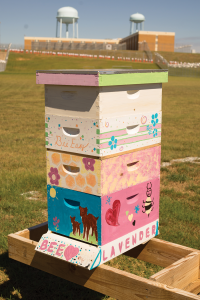 What I gleaned from these letters is how beekeeping has been a life changer for these five women. Not only being able to escape the prison walls for minutes each week, but becoming certified and journeyman beekeepers, and accomplishing something they themselves believed they couldn’t. In the beginning, they were doubtful of their abilities to pass these exams; but with the support and encouragement of several volunteers (Julia Mahood and Virginia Webb), a lot of hard work and studying, they realized that not only were they capable of becoming a certified beekeeper, they were competent enough to continue the journey. It still amazes me all the many ways honey bees help us humans!
What I gleaned from these letters is how beekeeping has been a life changer for these five women. Not only being able to escape the prison walls for minutes each week, but becoming certified and journeyman beekeepers, and accomplishing something they themselves believed they couldn’t. In the beginning, they were doubtful of their abilities to pass these exams; but with the support and encouragement of several volunteers (Julia Mahood and Virginia Webb), a lot of hard work and studying, they realized that not only were they capable of becoming a certified beekeeper, they were competent enough to continue the journey. It still amazes me all the many ways honey bees help us humans!
One thing I’ve learned since my involvement with these imprisoned beekeepers, they are just like you and me. They have hopes and dreams, smiles to share and stories to tell. It’s been a pleasure meeting and working with them these last years. Hopefully one day, when they become our neighbors, they will continue this beekeeping journey on this side of the fence.
Next month, I would like to highlight the volunteers that are making this all happen, Julia Mahood, Rick Moore, Brutz English, Virginia Webb, Broadus Williams and Bear Kelley. These are the ones who have taken countless hours of their time and tirelessly driven to the prisons to educate individuals who have little to no opportunity to learn about bees. Thank God for each of them.
Take care of you and the bees!
Jennifer Berry is the Research Leader at the University of GA Bee Lab in Athens.






